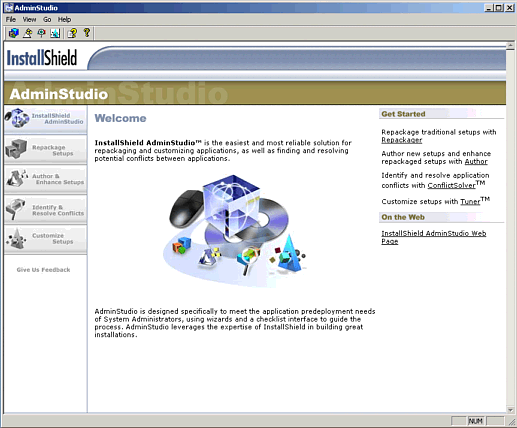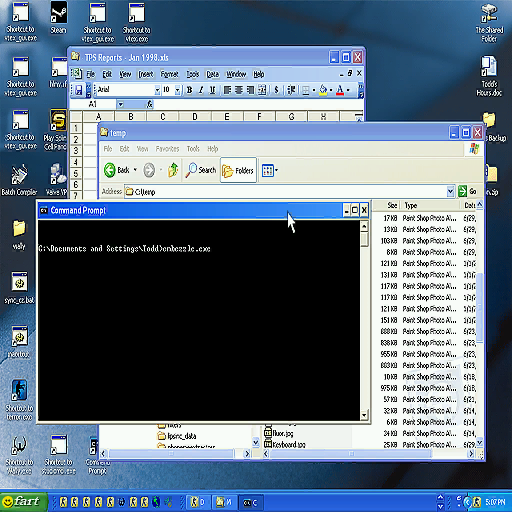
In the early to late 00s, most programs were governed and dictated by a serial or "CD-key". Essentially, it connected to a centralized authentication server that authorized a specific copy (usually through a hash within the execution of the program) with the CD-key that was stored on their system. You were given a CD-key that was to be authenticated to their CD-key, and that is how they usually started to use the Internet to itemize and add the key to the purchased/registered inventory.
Before this, the actual CD-Key was checked within the CD-key registered within the program. With Windows 95-98, I remember it was either in WinRegistry or some other text file that you can easily crack. Through WinXP and Broadband prevelance, this became harder to do.. but still easy if you knew how to generate based on randomization.. since the komputer isn't fully random.
I'm no expert on number theory or mathematics, but I think maybe either
termer or
signal680 can chime on this further.
I was born 4 burning.
I was born 4rm the galvanized dome.
// 3DT FOREVER ...
Try the new 3DT Mobile system

Posted at 2022/04/24, 00:15:55
Post ID: 6088
[img]https://www.itninja.com/static/12da0a77ab38c07c73ea74a4c98a93bd.gif[/img]
In the early to late 00s, most programs were governed and dictated by a serial or "CD-key". Essentially, it connected to a centralized authentication server that authorized a specific copy (usually through a hash within the execution of the program) with the CD-key that was stored on their system. You were given a CD-key that was to be authenticated to their CD-key, and that is how they usually started to use the Internet to itemize and add the key to the purchased/registered inventory.
Before this, the actual CD-Key was checked within the CD-key registered within the program. With Windows 95-98, I remember it was either in WinRegistry or some other text file that you can easily crack. Through WinXP and Broadband prevelance, this became harder to do.. but still easy if you knew how to generate based on randomization.. since the komputer isn't fully random.
I'm no expert on number theory or mathematics, but I think maybe either [mention=termer]termer[/mention] or [mention=signal680]signal680[/mention] can chime on this further.
I think the more complicated systems did encryption with the key before internet activation. I remember hearing about one of the first really widely used DRM kits that installed a kernel driver to enforce the DRM with the key. It was Russian, but I don't remember the name of it. Once things connected to the internet, it was probably a little easier for them
Posted at 2022/04/24, 00:21:38
Post ID: 6088:6089
I think the more complicated systems did encryption with the key before internet activation. I remember hearing about one of the first really widely used DRM kits that installed a kernel driver to enforce the DRM with the key. It was Russian, but I don't remember the name of it. Once things connected to the internet, it was probably a little easier for them
 In the early to late 00s, most programs were governed and dictated by a serial or "CD-key". Essentially, it connected to a centralized authentication server that authorized a specific copy (usually through a hash within the execution of the program) with the CD-key that was stored on their system. You were given a CD-key that was to be authenticated to their CD-key, and that is how they usually started to use the Internet to itemize and add the key to the purchased/registered inventory.
Before this, the actual CD-Key was checked within the CD-key registered within the program. With Windows 95-98, I remember it was either in WinRegistry or some other text file that you can easily crack. Through WinXP and Broadband prevelance, this became harder to do.. but still easy if you knew how to generate based on randomization.. since the komputer isn't fully random.
I'm no expert on number theory or mathematics, but I think maybe either termer or signal680 can chime on this further.
In the early to late 00s, most programs were governed and dictated by a serial or "CD-key". Essentially, it connected to a centralized authentication server that authorized a specific copy (usually through a hash within the execution of the program) with the CD-key that was stored on their system. You were given a CD-key that was to be authenticated to their CD-key, and that is how they usually started to use the Internet to itemize and add the key to the purchased/registered inventory.
Before this, the actual CD-Key was checked within the CD-key registered within the program. With Windows 95-98, I remember it was either in WinRegistry or some other text file that you can easily crack. Through WinXP and Broadband prevelance, this became harder to do.. but still easy if you knew how to generate based on randomization.. since the komputer isn't fully random.
I'm no expert on number theory or mathematics, but I think maybe either termer or signal680 can chime on this further.



